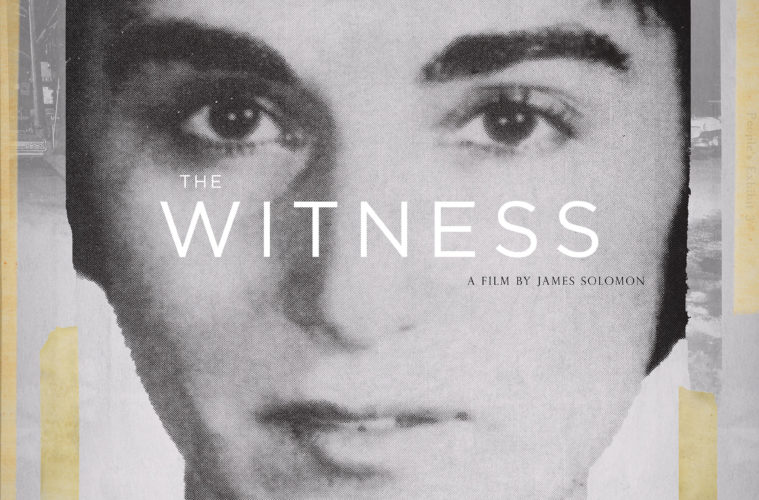In 1964, 28-year-old Kitty Genovese was raped and murdered outside her apartment building in New York City. The New York Times made her a focus of national fascination when it reported that 38 of her neighbors had witnessed the crime and did nothing to help — not even calling the police — and she died alone. In the 50 years since, Genovese has become a hallmark of debate about urban apathy, a useful reference for any story to make as shorthand for what bastards people are, and the subject of numerous fictional adaptations of her story (the Law & Order franchise alone has done at least three episodes based on her case). At the same time, Genovese’s siblings have continued to nurse their hurt over their lost sister. In particular, her younger brother Bill openly admits to have never gotten over her death, and that this event has shaped large parts of his life.
The Witness follows Bill Genovese as he launches an amateur investigation into Kitty’s death, decades after the fact. While the Genovese murder seemed ripe for reexamination when filming started in 2004, between then and the documentary’s release, it’s been beaten to the punch by several different books and articles, including a retraction of sorts from The New York Times itself, included in its obituary of Winston Moseley, the man convicted of the killing. As a result, the movie has few true revelations to offer.

Those revelations are worth being repeated, though, particularly since they have to go up against 50 years of cultural myth. And it turns out that’s largely what the story of 38 witnesses is: a myth. No one saw what happened to Kitty Genovese in full. Most of the “witnesses” only heard a scream or scuffle. Most had no idea anyone was in danger. No one saw the final fatal stabbing and rape. A neighbor found Kitty and held her as she died. Oh, and at least two people actually did call the police. They were ignored. Always be suspicious of any story that blames a group of people more than an institution for social neglect.
Though the doc can’t claim to be the first to report any of these things, it has other merits. It’s touching to watch Bill learn more about his sister as a human being rather than a headline. He speaks to her old friends and learns a few things The Times notably ignored, like how Kitty worked in a bar and was gay. And the long view the film is able to take of grief and its seeming permanence is sometimes harrowing. Bill, who lost his legs fighting in Vietnam, directly attributes his decision to enlist to a desire to not be like the alleged bystanders at his sister’s death. This raises the most troubling question of all, though the doc doesn’t ask it directly. Is Bill correct in this reflection, or is he in retrospect trying to make sense of an action that he might otherwise not be able to properly articulate? This movie is full of varied, contradicting stories people have told themselves and others in relation to a single event. Their versions are often tailored to make themselves look good, to confirm their worldview, or both. The facts are basically beside the point. Bill linking (blaming?) things that have gone wrong in his life to Kitty presents a clear cause and effect makes pleasing narrative sense in fiction. But real life is rarely so clean.

We try to find meaning in it regardless. Documentary can be both a method of perusing life’s intimidating senselessness and of imposing some kind of story and order on it. The Witness tries to do both, with director James Solomon both observing Bill’s struggle to understand what happened to his sister and attempting to claim that the process brings him closure. The latter is accomplished through, among other things, an unconvincing sequence in which Bill hires an actress to recreate his sister’s screams outside of her old apartment building. Rather than intelligently grapple with the complexities, the filmmakers let various people have their say and then call the whole thing done.
It doesn’t help that the investigation part of the movie is handled so sloppily. Assembling a sensible story out of 11 years’ worth of interviews is unwieldy, to be sure, but the sequence of developments as The Witness presents them in an odd, staggered manner. Bill appears to keep asking about why the witnesses to Kitty’s murder “did nothing” even after that narrative is shown to be flawed. Rather than proceed in a logical manner, the inquiry hops around from one topic to another, and sometimes doesn’t return to pertinent questions. It seems that each relevant “topic” related to the case (the incident itself, the initial Times story and the reaction it caused, the background to the Times story, etc) just gets a 10-minute spotlight, and the doc does its best to line them up. In particular, a conversation between Bill and Moseley’s son ends up being a tremendous missed opportunity, coming across as nothing but a stilted exchange which inspires little further reflection and zero follow-up. The personal element is underutilized, and actually gets in the way of engaging the questions raised by Kitty Genovese’s death and its aftermath.
Witness opens in limited release on Friday, June 3.

